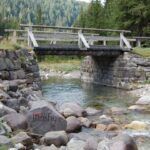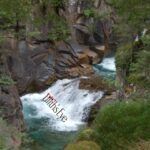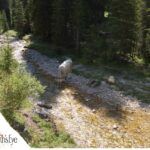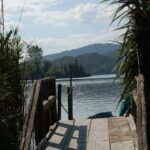Self care, Write here, write now
BE REBEL, WELCOME VULNERABILITY
25 July 2022
While observing a world in which we try to categorize and dominate emotions, to divide them into good and bad, beautiful and ugly, a world in which the hero or heroine of our times are those who do business, “make it on their own*” by exploiting anyone who comes within reach under the guise of the underpaid experience “that fortifies you”-an obsessive mantra that has entered the daily vocabulary, a testament to the cultural drift we are experiencing – I find that I am very fortunate to be able to experience life at every turn, nurturing it with growing knowledge that sprouts all the time, everywhere in the world. Experiencing life also means experiencing who we are through our emotions. I do this from caring for relationships, from pursuing collective goals, from wanting to stand outside that stereotypical, hasty, judgmental circle of reasoning of those who stand warring against themselves and the world.
Being able to look at the world through listening to our emotions can only make us better. Absorbing useless and empty speeches, while trying to live some of these moments with little participation, causes injuries in my soul, which I try to medicate through caring for constructive, stimulating relationships, reading or walking to observe that nature around me that can only bring me back to look forward to transformation and evolution. Thinking about the life cycle of water, helps me re-center my priorities, my goals. Like the lonely water that comes down from the mountain and becomes a stream, I try to flow, enjoying the landscape transforming around me: I flow to nourish the nature that needs me, and gradually I grow until I become a stream, broadening my horizons and discovering new life…until I end up in the sea (in the ocean, the river, the lake) where I meet other life forms, and I move with them to generate transformation again.
Water does not resist. Water flows. When you plunge your hand into it, all you feel is a caress. Water is not a solid wall, it will not stop you. But water always goes where it wants to go, and nothing in the end can stand against it. Water is patient. Dripping water wears away a stone. Remember that, my child. Remember you are half water. If you can’t go through an obstacle, go around it. Water does.
― Margaret Atwood, The Penelopiad
Retracing the evolution of my life and observing it here and now is like following the path of water: it is my medicine to overcome the moments of discouragement of defeat, to face demons and dangers, to realize that those who hurt me, used me, mistreated me, ignored me, are part of what I encountered as I flowed along my path: they are those parasitic life forms that were there and are still there. I cannot meet them in the sea; they will never get there.
Coping with our own vulnerability is complicated, but we don’t have to make it our enemy. If we stop, or feel down, we don’t have to make a feline dash to get back on track, because it wouldn’t be our race. We don’t have to participate in a race, where is that written? Ah yes, sorry…that’s right: it is written! In the sense that we now live in the constant urge to react, immersed in a reality of aphorisms and quotes that refer to struggles, battles, strength, endurance, discipline, so much so that we feel ashamed to be so vulnerable.
Ilaria’s own experience certainly can support my reflection: after devoting much of her life to work in a particular activist context, she finds herself dealing with people who resent her criticism of an opaque system. Despite having enjoyed the appreciation and recognition for her work up to that point, Ilaria gradually finds herself being mobbed by the people with whom she built an excellent working relationship and relationships she believed in. Every workday becomes characterized by exclusion, boycott, frontal and unprovoked attack, and isolation. Her every word, attitude, emotion are manipulated to lead her to believe that she is an unfair person. As time passes, each workday begins with a panic crisis and ends with a panic crisis. Ilaria becomes ill, with an illness that she will carry inside for the rest of her life. There are days when she cannot work, and she who had never taken a sick day finds herself asking for understanding. Which she does not find, and that is the moment when that world around her sinks the blade. Ilaria begins to find herself in a surreal situation, where she no longer recognizes anyone, and sees herself treated as a criminal, an evil person, a lying person. She, who spent hours and days taking in everything good and bad that happened there, so that it was possible to create a healthy work environment; she, who worked tirelessly far beyond what was due, for herself and for others; she, who defended anyone’s work against the very people who have now armed this war from which she will now not come out alive.
She opts not to spend too much more time in that place. Her body is telling her that it is time to stop, before it is too late. It tells her very clearly that evening when, leaving work, Ilaria is so exhausted that she throws herself into the middle of the road as a car is coming. Only the promptness of the driver saves her, and also his getting out to ask her, “Are you all right? I saw that you were just on another planet.” More than on another planet, Ilaria is locked inside that cage that shows her nothing but the injustice she stands. And she can’t make it to scream, she can’t make it to think, she can’t even defend herself anymore. Ilaria chooses to let things be, because what they are waiting for is the very near end of her contract. Before she gets to the day that for Ilaria represents both pain and liberation, the emotions she goes through range from overwhelming anger to the peaceful realization that she cannot build anything good in there because she is dealing with constant manipulation of which she is now the target, but then someone else will be. And this happens in work settings lacking attention to individual and collective well-being, which is to say in most of them. She cannot do anything more than what she has done over the years, in the face of people she no longer recognizes but perhaps because she had illusions of knowing them. She can choose to secure her life, her health, her happiness.
Ilaria finds herself facing the world of people who lose a job or suffer an injustice: many backslaps and great declarations of esteem, of understanding of the injustice suffered. Mobbing leaves deep scars and wounds that do not always heal with time. Taking care of ourselves, relationships and knowing how to listen is essential to be able to heal those wounds. It is necessary to take time and not feel ashamed of our’s emotions, because they are what drive our existence. Sometimes it is necessary to take a break from what we do not like and what resonates badly with our path. Ilaria, facilitated by the fact that many people treat her like a leper on the one hand because she dared to question that context, on the other hand because they do not want to listen to her story that might as well be made up-violence, Ilaria well knows, is always subject to judgment yes…but judgment is made on those who suffer it-and because she cannot fully tell it, she chooses to take advantage of these dynamics to take a break from connections with people around her.
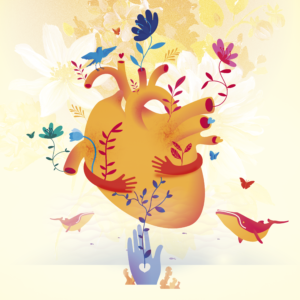 Simultaneously, she nurtures herself, her emotions, her interests. Slowly she moves away from that place that from a cozy home became a place of torture, retracing her entire life: she had to pass through there in order to experience a new evolution of her life, of her being in the world and in connection. This does not correspond with justifying the violence, the lying, the cold, lucid will to leave her without a job and isolate her. These too are her emotions, of which she is aware and which guide her in her reading of the world and her own life. She does not feel ashamed of her anger, does not feel that she has to justify every single emotion she feels or that she has to make an effort to eliminate some of them. She has no difficulty today in telling that she does not feel empathy for these people, either in the good or the bad.
Simultaneously, she nurtures herself, her emotions, her interests. Slowly she moves away from that place that from a cozy home became a place of torture, retracing her entire life: she had to pass through there in order to experience a new evolution of her life, of her being in the world and in connection. This does not correspond with justifying the violence, the lying, the cold, lucid will to leave her without a job and isolate her. These too are her emotions, of which she is aware and which guide her in her reading of the world and her own life. She does not feel ashamed of her anger, does not feel that she has to justify every single emotion she feels or that she has to make an effort to eliminate some of them. She has no difficulty today in telling that she does not feel empathy for these people, either in the good or the bad.
Ilaria went through a hell that even led her to desire death, and it all happened because she thought too long that she had to resist and fight against violence that other people had chosen to use against her. Because the watchwords that resonate around us in difficulties are:
– Resist and fight, because letting down our guard meant not being strong enough, deserving of this life.
– Success, satisfaction, goals, are only achieved if you put aside the emotions that stop you.
– Tight teeth, straight shoulders and a steady stride: these are the keys to a successful life.
– If they beat you, you beat them twice; if they induce you to quit, you don’t. If you do, shame on you.
Ilaria today knows that pausing for a moment sometimes makes the difference between life and death. And she also knows that a story can be told in many ways.
This, which would be a much longer and more articulate story, is a small tool to make you understand how important it is not to hide our vulnerability, our feeling, for fear of being judged. It is an act of rebellion, a real act of rebellion against that constant masking that we have to apply to our emotions in order not to expose ourselves too much — to critiques, to people — risking leaving our vulnerability covered.
It is an action of self-care, because it helps us eliminate all the side effects that can arise from stifling emotions, on the relational, physical, and psychic level.
What else? Ah yes: let ourselves be exposed to wonder, and we will have fewer other people’s lives to discuss. I felt wonder when one fine day, as I was writing this very piece, a friend sent me a link to a Ted Conference held by Brenè Brown on the power of vulnerability, writing that he had a feeling I might be interested, and that he had found it very helpful to read her books. I followed it, and I went and looked up his books as well, and I said to myself, “come on, then I’m not writing bullshit, my feeling isn’t just my own”-keeping my self-esteem on the fence is my main activity, I participate in the Low Self-Esteem Olympics with some perseverance-and there it is, having empathic human relationships is what life is all about.
The converse is always the same: sensitive people need to be close.



